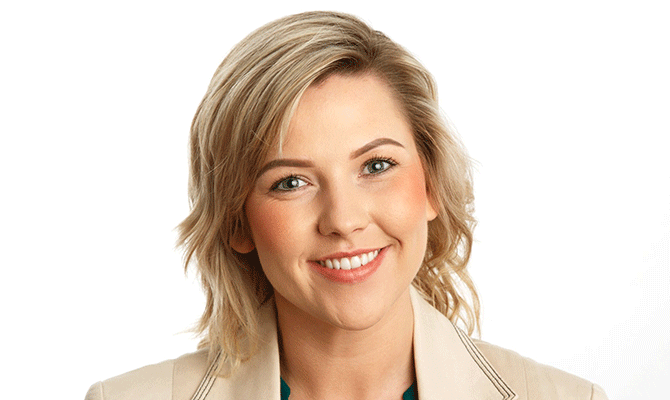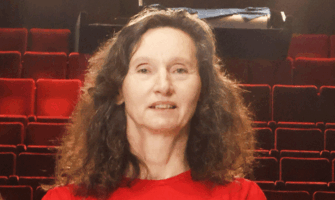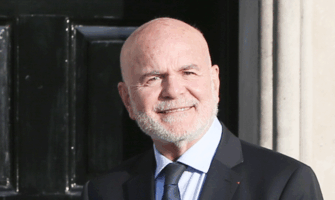
Becky Kealy
SMALLER PARTIES can be easily crushed by the juggernauts of the major political players but, with the possibilities of government formation so finely balanced, parties such as Aontú are hoping that a breakthrough by Becky Kealy in Cork North West along with sitting TD Peadar Tóibín can earn the party a seat at the negotiating table.
Kealy, 28, has a master’s degree in chemistry from University College Cork and works in the pharmaceutical industry, where she is regarded as a high-flyer. Despite her youth she has several years of political activity behind her, not only in Aontú but also, perhaps more significantly, in the campaign to keep the eighth amendment to the Constitution, which banned abortion.
Abortion, of course, was the issue on which Tóibín, Aontú’s leader, split from Sinn Féin, and, at first sight, Kealy would seem to be a natural fit for Cork North West, which voted 80% in favour of the amendment when it was first put in the Constitution back in 1983.
Nevertheless, the same constituency voted 60% in favour of repealing the amendment in 2018. But there remains a solid – if not majority – support for banning abortion in this constituency and Becky Kealy, who was extremely active in the 2018 campaign, will be hoping to capitalise on that.
She stood in the 2020 general election in Cork North West and, in her first outing, scored an impressive 8.5% of the first preferences, some 3,800 votes.
Becky Kealy is nothing if not resilient. Despite failing to take a seat, she went on to host an International Women’s Day event, presumably for women not opposed to patriarchal principles. And, taking a leaf from Tóibín’s book, she has since inundated the people of North West Cork with a barrage of statements on fisheries, climate-friendly agricultural development, solidarity with striking fire personnel and calls for rural economic development.
If she’s on the right on social issues and decidedly anti-woke, she is energetic on left-wing economic matters and keen to engage, debate and organise.
SF did not run in 2020 but will be in the field with Kanturk-based Clare O’Callaghan. As Aontú draws significantly from the same pool as SF, it is yet to be determined which will fare best in the next election.
Liadh Ní Riada bombed in SF’s ill-conceived presidential campaign in 2018 but she was an impressive member of the European Parliament for the party and had been chosen as the party’s general election candidate. Earlier this year, however, she announced her intention to resign from politics, leaving the party in some disarray.
SF says it is confident that O’Callaghan can carry and grow the Ní Riada vote and, as both she and Kealy come from Kanturk, there’s an intriguing prospect ahead.
Ní Riada has described Cork North West as an extremely conservative constituency – not just in social attitudes but in economic matters as well, with agriculture being the mainstay locally. This probably spurred her decision to abandon the field, although SF remains hopeful that its strong national profile can translate here as well.
Not having contested in 2020 makes analysis of potential support difficult but SF suggests it could reach 17% on a good day. Not only would this leave the party still needing significant transfers (in a three-seater the quota is 25%) but Aontú will inevitably take a big chunk of that 17%, further weakening SF’s position, with Kealy perhaps better placed for transfers from what Ní Riada has described as the most conservative electorate in the country.
Becky Kealy has another significant advantage in that she established her profile in 2020 and is widely known throughout the constituency. SF is relying mainly on its national profile and O’Callaghan’s record in local work.
Cork North West remains a three-seater but the lines have been redrawn, with Ballincollig being ceded to Cork North Central. This will increase the rural nature of the constituency and probably its conservative character.
This change will affect Fianna Fáil’s Michael Moynihan more than any other TD and Fine Gael will be hoping to capitalise on that.
Unfortunately, FG’s incumbent TD, Michael Creed, is retiring and that will put extra pressure on the party in looking for two seats. John Paul O’Shea, who stood unsuccessfully in 2020, will stand again but it is unclear who will be his running mate.
It is hard to see FG getting the two seats given the reduction in its national vote, the retirement of its incumbent TD and the uncertainty about the ticket. In 2020 FG scored 33% to FF’s 39% and national polls indicate its position has slightly weakened since then. One seat is certain but two is problematic.
On the other hand, FF is also weakened by the loss of votes in Ballincollig. In 2016 and 2020 astute vote management gave it two seats out of three but, again, if the national polls are any guide and given the loss of votes in Ballincollig, it will probably find it harder the next time around meaning that Aindrias Moynihan TD (no relation to party colleague Michael Moynihan) will return as FF’s single Dáil deputy for the constituency this time round.
This is where the gap opens for a republican or left-wing voice to snatch a seat. In addition to Aontú’s Kealy and SF’s O’Callaghan, the Social Democrats will also enter the fray, having scored 8.3% of first preferences (3,845) in 2020 with Ciarán McCarthy.
Cork North West boasted a Labour Party TD at one time, though very briefly, so there is some tradition to follow. The combined figures for the left in 2020 (Aontú, Soc Dems and Greens) exceeded 24% first preferences, just short of a quota.
So, there is a seat there if the establishment parties fail to get their act together. The problem will be how to ensure a rational transfer that makes the most of these seats and stops them drifting back to the established parties.
The Green Party is almost certain to fall back, in line with national trends, and has become exceptionally transfer toxic in this agricultural constituency. It can be expected to perform poorly here but the party’s transfers could prove decisive.
Environmental Green voters are unlikely to be drawn to either of the other two government parties and whatever vote they get will probably split three ways – one-third plus to the Soc Dems and a bit less than one-third each to Aontú and SF.
This brings us back to the fight between Aontú, SF and the Soc Dems. Whichever emerges strongest from this group in first preferences will be in with a chance but we will have to wait for next summer’s local elections to get a real appraisal of the standing of the various parties. This is where SF’s greater resources in canvassing power and range of candidates could prove decisive.
Becky Kealy, for all her professional competence, may find it hard to score on the big pitch but at least she can see a way where it could possibly be done.



















